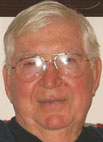
Farmers’ livestock herds change as their lives change. This is what’s happening to Derrick and Simonnee Butler who lease 60 acres in Bentonville, Ark., and run some cattle on Simonnee’s fathers land. One defining factor in the nature of their cattle operation is rodeoing. The couple first met in 2003 when Derrick judged some rodeos that Simonnee competed in. The couple’s paths crossed again three years later when both were competing in another rodeo.
Both had different backgrounds. For Derrick that background was horses while Simonnee’s family raised beef cattle. In 2009, Derrick’s dedication to roping resulted in traveling 45,000 miles and winning the title of Team Roping Rookie of the Year for the Arkansas Cowboys Association. Derrick grinned and said, “I still rope three to four times a week but would do it even more if Simonnee would let me.”
When the couple married, Derrick and other members of Simonnee’s family decided to have a jackpot team roping competition at Marchant Hills Arena in Elm Springs, Ark. The roping venture began with the family partners buying 50 head of roping Longhorns in Purdy, Mo. However, because the venture proved to be too time-consuming, the family split the herd and discontinued the jackpot.
Simonnee’s father had the Longhorn bull, which he let Simonnee and Derrick use for breeding as the couple began building up their Longhorn herd.
Derrick said, “Longhorns are perfect for us. They thrive on land with roughage forage. Our land supports 32 Longhorns but could probably support only half as many beef cattle.” Simonnee added, “They are really hardy and require deworming only once a year and no vaccinations.” Because of their hardiness and natural drought resistance, the Butlers’ Longhorn herd managed the recent drought without complication. During the drought a pond went dry, but the Butlers had sufficient water from a well to keep the herd healthy and strong. The couple also bought another group of roping heifers which included one Watusi.
Three years ago the couple decided to change up the genetics in their Longhorn herd by using two half-brother Angus bulls belonging to Simonnee’s father because the Longhorn herd was now used to produce cross beef calves instead of roping stock. The purpose of the genetic change was to produce solid colored calves, hopefully black, which the couple believes sells for twice as much per pound at the sale barn then pure Longhorns. They sell their calves when they reach 400 pounds.
The most recent addition to the Butler cattle operation has been the purchase of 23 commercial Angus heifers. The heifers were purchased at 425 pounds and will be soon sold to local farmers at 600 pounds for a profit of $.50 per pound. This herd is supported with a full vaccine protocol in addition to deworming. Derrick said, “This is a worthwhile and profitable part of our operation, one that we will continue in the future.”
Coyotes and dogs were a problem, especially since the couple does not live on their acreage. Four years ago they got a full-sized jenny for predator control and two years later purchased a mini jack and two jennies. Simonnee also thinks they are cute and is looking forward to having a new mini baby. Simonnee said, “I’ve seen zero coyotes or dogs since we’ve had them. The funny part is the mini’s are more aggressive with predators than the full-size donkeys and really do all the work.” Because all of the donkeys were young when purchased and grew up with the herd, herd loyalty is not an issue.
The Butlers care for their land by using Grazon P+D for weed control and a liquid fertilizer instead of chicken litter because chicken litter is hard to get. The advantage of both products is they penetrate instantly and are totally safe for immediate grazing by the cattle.
Both Derrick and Simonnee have off-the-farm jobs. Derrick does, “whatever will make a dollar.” That includes spreading gravel, brush hogging, and, most importantly, custom haying as well as selling and delivering hay. Last year Derrick baled 3,000 round bales and 4,000 square bales, some of which came from his own land. Simonnee, on the other hand, works in the family operated store Nelson Hardware & Supplies in Cave Springs.







